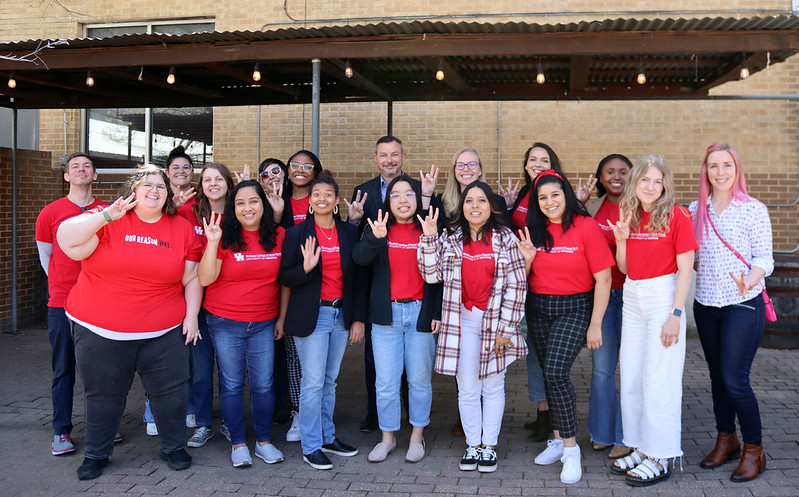GCSW Students Advocate for a Social Work Intern Practicum Stipend

GCSW students traveled to Austin earlier this month for Social Work Advocacy Day (SWAD) at the Texas State Capital. Students attended advocate panels, had lunch with students from the GCSW’s Austin Legislative Interns Cohort, participated in discussions with legislative staff, networked with social work students from other Texas Universities, and more.
“Connecting with other students from the GCSW and future social workers from other schools was one of my favorite parts of SWAD day. It’s moving because you see everyone’s passion for positively changing our society,” GCSW first-year student Berenisia Aguilera said.
During the afternoon, GCSW students met with staff from State Representative Ann Johnson State Senator John Whitmire, and State Senator Carol Alvarado’s offices. The students advocated HB 1396, which would “ensure pay parity for all mental health professionals providing psychotherapy and allow LMSWs under clinical supervision to bill Medicaid,” and SB 1796, which focuses on the SWIPS program (Social Work Intern Practicum Stipend).
GCSW students Drew Tonjes, Frances Fisher and Alex Parris co-founded the University of Houston chapter of Payment for Placements (P4P).. P4P is a national movement that started at the University of Michigan.“The core goals of P4P is to provide payment or stipends for Social Work practicum placements, with a priority on students with financial need,” Parris said.
“The practicum stipend is particularly important to me because I see that the requirement of a yearly internship to graduate as a social worker is a huge barrier for people who want to go into this work as well as for people remaining in the programs. The yearly internship is 20-25 hours a week and very few places pay their interns. Many students are faced with taking on additional debt or working another part-time job or quitting the program altogether,” Fisher said. “We need people who have the lived experiences of the communities we serve to be social workers, so many want to do this work but the prospect of working 20-25 hours a week unpaid is an impossibility. This is why having the state provide a stipend to support social work students is critical.”
Discussing legislative priorities with the representative’s staff was the highlight for many GCSW students who attended SWAD for the first time as social work students.
“I thought the SWAD experience was great! This was my first time doing anything like this . . . meeting with representatives and communicating about why I want their support for specific legislation. I think that is such an important skill to develop for all social workers, whether you are clinical or macro,” Fisher said.